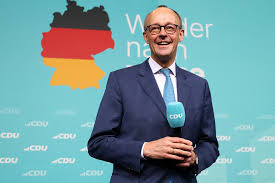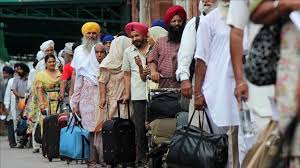Germany’s Merz plans Paris and Warsaw visits ‘very soon’

Berlin: Germany’s next chancellor, Friedrich Merz, says he will travel to Paris and Warsaw as soon as possible and coordinate closely with both capitals on confronting Donald Trump.
In an interview with German tabloid Bild, Merz gave an insight into his foreign policy planning for his first days in office which is expected to start on 8 May.
“I will … immediately travel to Paris and very quickly travel to Warsaw,” he said.
The incoming German leader said it was important for Berlin to “work together very well, very quickly” with the French government and to collaborate “on a par” with Poland.
Merz, a Christian Democrat (CDU), broke his self-imposed silence after securing a deal to form a coalition government with the Social Democrats (SPD) and the CDU’s own sister party the Bavarian Christian Democrats (CSU).
Early visits to Germany’s largest neighbours in both the east and west have traditionally been agenda priorities for new German chancellors. The incumbent, the SPD’s Olaf Scholz, has been accused of neglecting close ties with his allies, however.
Merz suggested that he will reverse that trend, specifically when dealing with America’s controversial president, Donald Trump.
“I will only travel to Washington once I have obtained a joint opinion and position from European partners on decisive topics,” Merz told Bild.
He listed France, Poland, the EU Commission, and Britain as his main interlocutors before any Trump meeting takes place.
That points to plans to return to informal coordination with Europe’s heavyweights, including non-EU members, rather than working through the EU institutions.
Merz also poured cold water on hopes of a swift EU and NATO accession for Ukraine in an interview with Handelsblatt, a German business publication, published on Sunday.
Ukraine is “a European country at war, and a country at war can neither become a member of NATO nor a member of the European Union”, Merz said, while doubling down further on the cautious stance he had taken during the election campaign earlier this year.
The CDU manifesto had remained notably ambiguous on Ukraine’s future within NATO while explicitly advocating for its accession to the EU.
“Ukraine has candidate status in the European Union and that opens the pathway to membership of the European Union … but a country at war cannot become a member of NATO,” Merz said.





